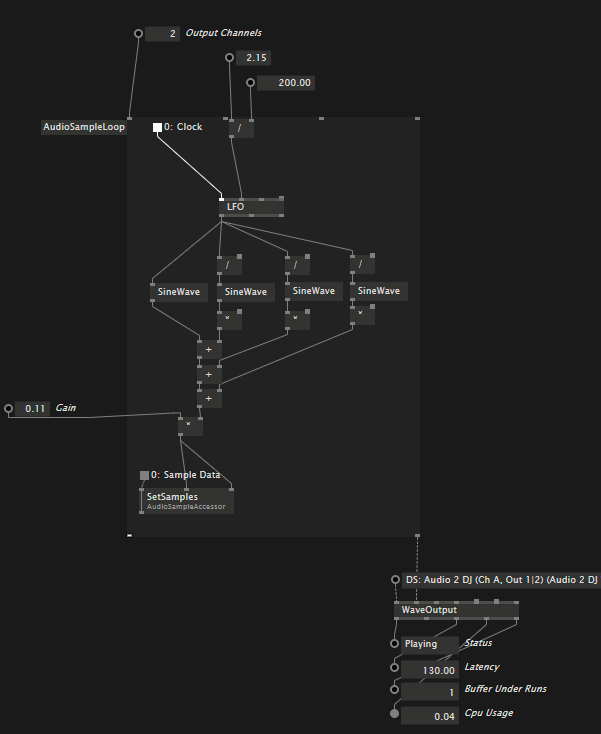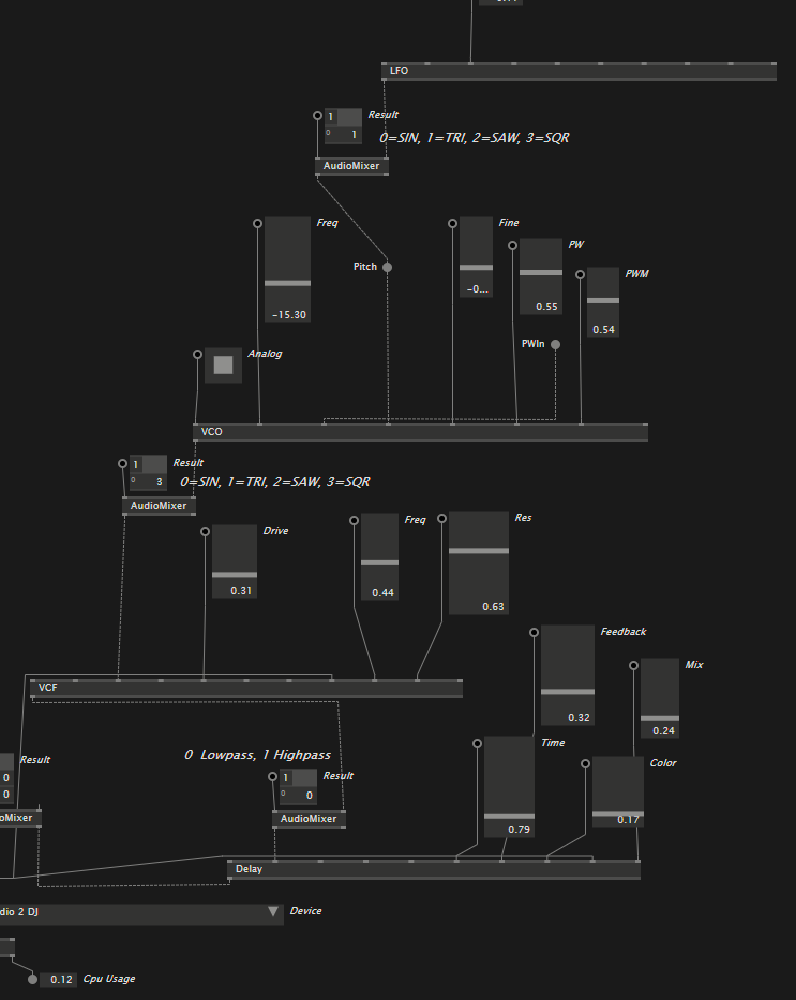Implementation of a modular audio engine for VL written from scratch.
There are a few important VL Nodes:
Any Windows sound input or capture device (WaveIn, Wasapi, Wasapi Loopback or ASIO). Outputs a fresh AudioSampleBuffer, that can be used later.
Any Windows sound output device (WaveOut, DirectSound, Wasapi or ASIO). Takes an AudioSampleBuffer and sends data to sound driver.
- WaveOut: Do not use this, its freaking slow!
- DirectSound, nah
- Wasapi: This gives good performance and work with low latency (~45m)
- ASIO: Use this if possible, latency is below 20ms
The data type, that flows through the VL patch. Contains a small portion of sound data in 32 bit float precision. May contain multiple channels in interleaved format (ch0, ch1, ch2, ch0, ch1, ...).
A custom region, that loops over an AudioSampleBuffer in the sound render thread.
In each iteration you have access to an AudioSampleAccessor. Use this with the Get/SetSample Operations to access samples per input/output channel.
If you want to use any time related VL Nodes, connect the supplied clock to your nodes. This clock ticks on sample base.
Operations to gain access to samples per channel in AudioSampleLoop.
Splits one incoming multichannel AudioSampleBuffer into several single channel buffers.
To mix multiple AudioSampleBuffers into exactly one output Buffer, you can use the AudioMixer. Takes a Spread of AudioSampleBuffers (with any number of channels) and a Spread of Integers, to map input to output channels.
Provides FFT data in raw format (real and imaginary part). See example for conversion to bins.
For some advance examples, check out Sample.CV for some crazy control voltage like machines.
Currently there are some remakes of a VCO, VCF, LFO and a Delay.

